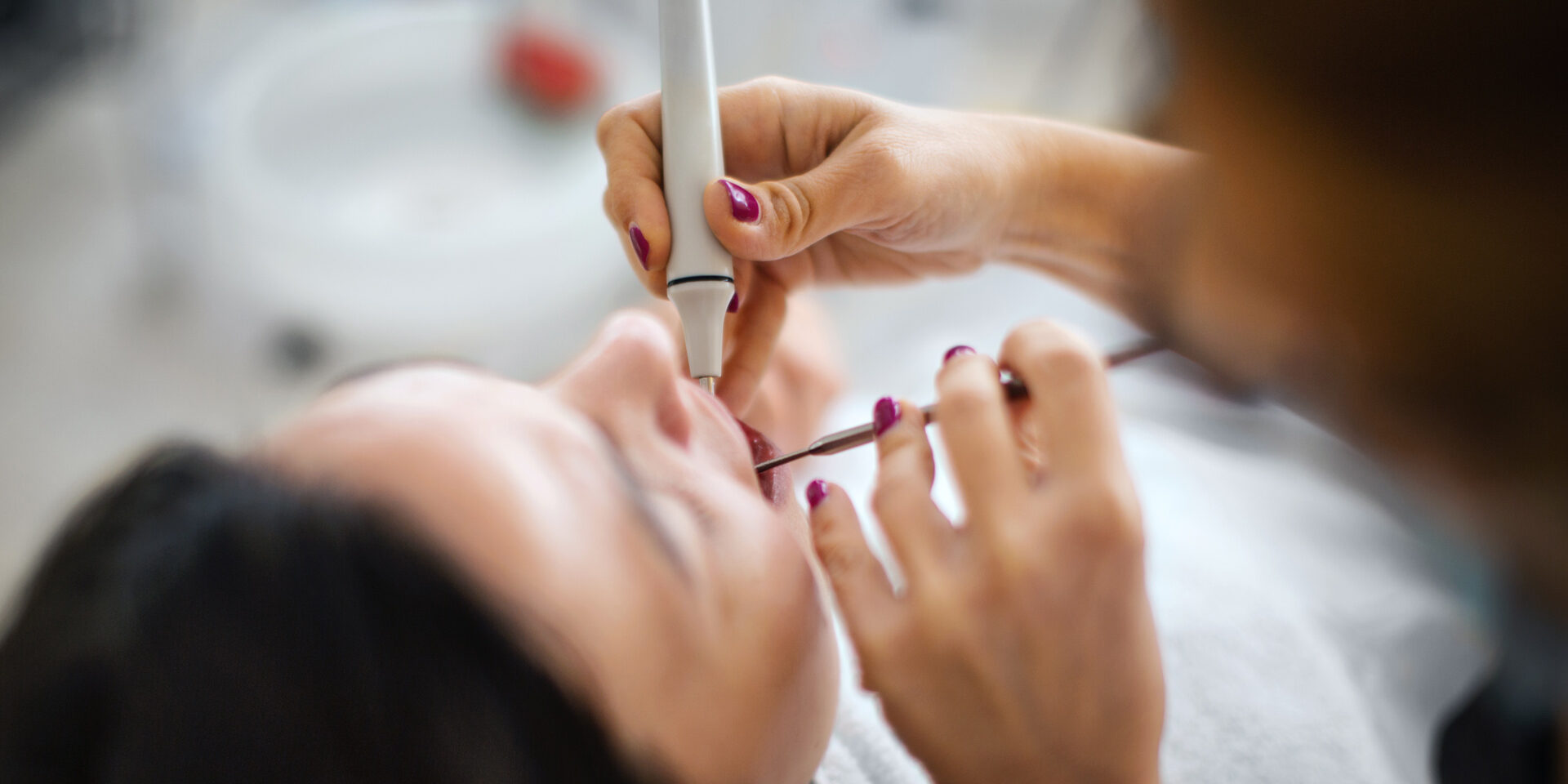From the time we are children, we are encouraged to visit the dentist regularly for our oral health.
However, the same encouragement hasn’t always been given for everyone to visit a hygienist, even though a hygienist is also highly beneficial for your dental health.
If visiting a dental hygienist isn’t something you do regularly, or if you’ve never been, read on to learn more about what they do, why they’re so beneficial for your oral health, and how often you should visit.
What does a dental hygienist do?
A dental hygienist shares some of the same tasks as your dentist – they will look for any signs of tooth decay, gum disease, and other issues. They will visually inspect your teeth for any signs of premature wear and tear, and they may also take an x-ray when indicated to do so.
The main job of a dental hygienist, however, is to provide oral health maintenance. This means scraping off any built-up plaque and tartar on your teeth and under your gums. This is important, because if plaque builds up on your teeth, it can harden into tartar, which you cannot remove yourself with brushing and flossing.
Due to the high prevalence of processed foods and sugars in modern societal diets, there is an increased buildup of plaque, which can result in more action being needed to maintain good oral health.
Following this procedure, your hygienist will also thoroughly floss your teeth and polish them.
Therefore, a dental hygienist helps to keep your teeth clean and healthy, ensuring bacteria and plaque are removed regularly.
Why should you visit a hygienist?
A dental hygienist is important because they add an extra layer of protection for your teeth.
Even the most fastidious brusher and flosser can miss certain areas of the mouth, and stubborn plaque can build up in hard-to-reach places. By visiting a hygienist, you are ensuring plaque and tartar are removed before they can start causing oral health problems.
Namely, oral health problems such as gingivitis and periodontitis. Gingivitis is the early stage of gum disease and is highly treatable with good oral health habits; whereas periodontitis is the later stage of gum disease and is only treatable with professional debridements of the root and deep tissue surrounding the teeth.
Periodontitis is a serious gum infection that damages the gums and can lead to tooth loss, jaw bone damage, and greater health issues if left untreated. Not to mention, periodontitis is incurable, which means it can only be managed, but not reversed.
Finally, your hygienist will also be able to offer personalised advice for brushing and flossing at home. For example, they will be able to highlight areas that you frequently miss during brushing, or offer tips for improving your flossing.
With good oral hygiene at home and regular visits to your dentist and hygienist, you are vastly minimising the chance of getting gingivitis or periodontitis. And if you do experience gingivitis, your oral health professionals can help to nip it in the bud before it becomes more serious.
How often should you visit a dental hygienist?
Much like visits to your dentist, it’s best to see a hygienist at least once a year. Getting professional maintenance work each year can help to keep your teeth and gums in optimal condition.
There are many factors that can predispose people to gingival complications, such factors include, smoking, fluoride, stress, grinding habits, medications, autoimmune diseases like diabetes, dry mouth, alcohol consumption, and most importantly, diet.
In these cases, your hygienist may recommend visiting more regularly to ensure proper oral health maintenance.
Hutt Dental Hub provides friendly, skilled dental hygienists who can help you to maintain your dental health. Contact us today to find out more or to make an appointment with a hygienist.






